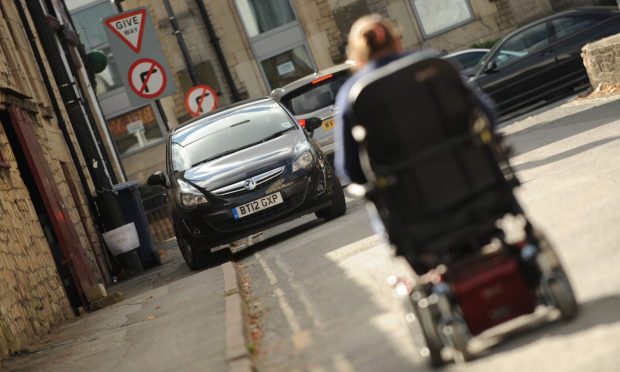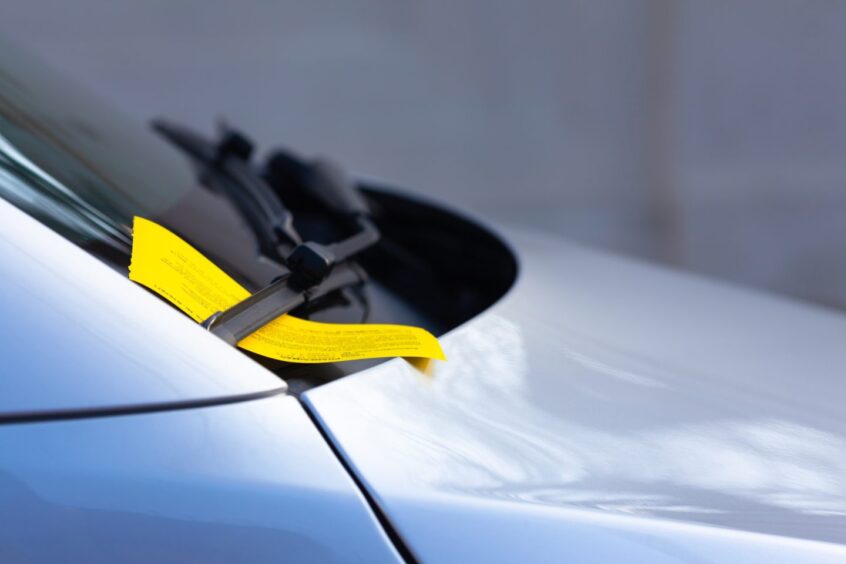Visitors and residents of Dundee will face fines of up to £100 if they flout the ban on pavement parking.
Support for the ban is wide-ranging, with a majority of those who took part in a poll by The Courier supporting the move.
But some have expressed concern about how it works in practice and the impact on those living in residential areas where there is no “official” car park.
The Courier has taken a look at the key questions below.
1. When does the Dundee pavement parking ban start?
The ban comes into force in Dundee on Monday (February 26) when Dundee City Council will start issuing fines.
So far, the local authority has only issued warnings to drivers found flouting the rules.
2. Who will receive fines for pavement parking in Dundee?
Fines will be issued to anyone found with one or more wheels of their vehicle touching the pavement.
Parking on grass verges – either between the pavement and the road, or to the rear of the pavement – is also prohibited under the legislation.
The council says it will also apply to those who double park or block dropped kerbs.
3. How much are the fines for pavement parking?
Anyone found breaking the rules will receive penalty charge notice from a council parking enforcement officer or traffic warden.
The penalty is set at £100, although this is reduced to £50 if the fine is paid within 14 days.
Anyone who receives a fine can appeal within 28 days either online or in writing – similar to how other parking tickets work.
4. Are any Dundee streets exempt from pavement parking ban?
The legislation allows councils to exclude some streets from enforcement so long as they meet one of two conditions.
An area of pavement can only be considered for exemption if the layout would allow 1.5 metres of the footway to remain clear even with a vehicle parked on it.
It can also be made exempt if the width of the road would mean parked vehicles could block an emergency vehicle.
Any area which is exempt from the rules will be clearly signposted.
The ban will include most streets in Dundee, but a small number have been identified as suitable for exemption from the rules.
However, the council will undertake a public consultation process before exemptions are approved.
5. Why was this law created?
In 2019 the Scottish Parliament passed the Transport (Scotland) Act.
This law introduced three new parking prohibitions – parking on pavements, at known crossings and in front of dropped kerbs. It also dealt with double parking.
Further legislation was needed to give councils the authority to enforce the ban, which has now been introduced.
Campaign groups have long supported an official ban, including disability charities such as the Dundee Blind and Partially Sighted Society.
6. Are pavement parking bans in place elsewhere?
Pavement parking bans are already in force in some parts of Scotland, but Dundee is the first council the Tayside, Fife and Stirling area to enforce the rules.
The approach varies with other local authorities, but most are considering their own crackdown on pavement parking in the coming months.












Conversation